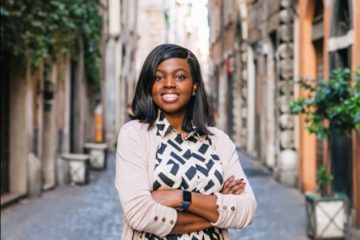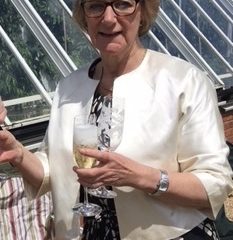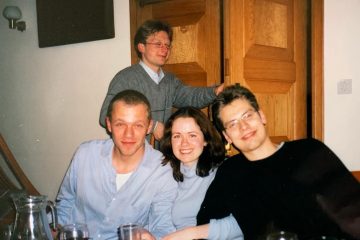When people, things, and places become so deeply embedded in our hearts and minds, it is often difficult to articulate precisely ‘how’ and ‘when’ they first wove their way into, and began subtly informing, the everyday patterns of our lives: so familiar and dear do they become. Cambridge, and my faculty (Divinity), in particular, have often felt like just such a permanent fixture: a geographical and institutional abode which has generated, and continues to nourish, some of my most enriching intellectual and personal relations. My chosen subject (Theology) has persistently drawn me into deep (and at times, scarcely navigable) philosophical and metaphysical waters: questions relating to the nature of God, the relationship between the finite and the infinite, and the irreducibility of human consciousness, have formed the basis of many agonising hours of solitary study as well as lively (and, dare I say, fun) conversation between peers and academics: and for me, it is this dynamic of intensive independent engagement with texts, always coupled with opportunities for creative and collaborative reflection (either through seminars or supervisions), that embodies the heart of the Cambridge learning experience.
I first joined the university as a member of Corpus Christi – a fairly small college which nurtures a wonderfully close-knit community and stands as a veritable hub for theological expertise and reflection. My two directors of study, Andrew Davison and Ruth Jackson, were (and continue to be) immensely supportive, always there to provide a gentle guiding presence and advice on matters personal and academic. I recall many late night ‘tea parties’ with friends and spontaneous walks around town (particularly at the height of exam term; Cambridge boasts some lovely walking trails) – seemingly mundane moments which, looking back, sparked many of my most enduring friendships and embellished my time at Cambridge with instances of invaluable respite. The extensive range of university societies also offers students considerable opportunities for activity and dialogue outside the formal institutional context and beyond their own collegiate boundaries. Such societies often centre around a shared cultural, ethnic or religious heritage and can therefore serve as networks of solidarity, reassurance (‘someone like me, from my particular ethnic and social background, can survive and even thrive at Cambridge’) and common ground in a (sometimes) alienating environment. FLY, a university society for women and non-binary people of colour, was foundational for me as a forum for exploring my own ethnic identity vis-à-vis the Cambridge context. My involvement in the Pakistan Society, too, will always be among my most cherished memories of university life.
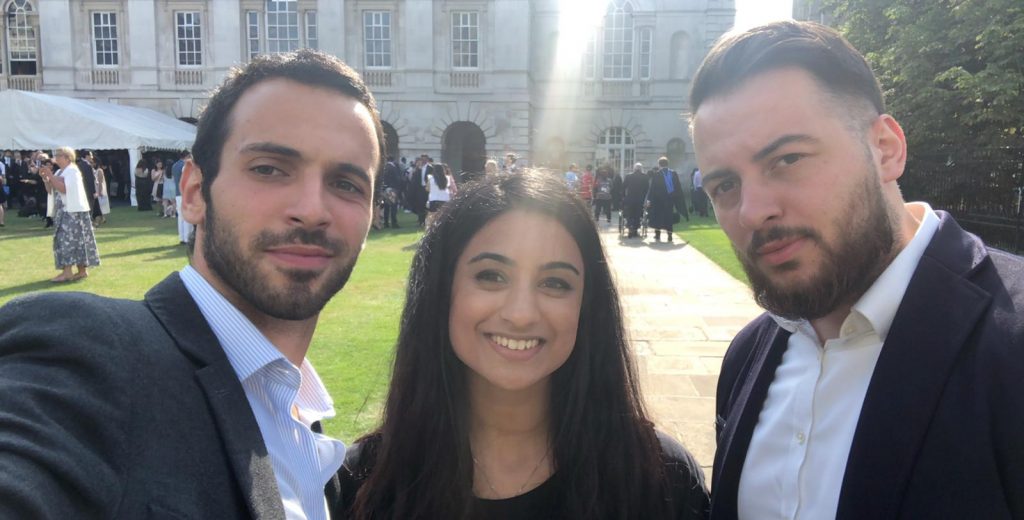
One year after graduating, I found myself back at the Faculty of Divinity – this time as a member of St Edmund’s. I began my MPhil from a very different vantage point, and against the backdrop of rather difficult family circumstances, I arrived in Cambridge with a distinct apprehension about how the year might pan out. In many ways, it did feel like a return ‘home’ – but this time, without the sense of assurance or ‘solidity’ that a home customarily provides. This anxiety soon dissipated, however, as the Eddies environment naturally conduces to a vibrant atmosphere of conviviality, warmth, and friendship. I remember with fondness Dr Bunbury pausing on her way whenever I encountered her, to ask how my studies were progressing and what I’d thought about life after St E’s. Fatimah Ashrif, the director of the Randeree Charitable Trust (who generously funded my MPhil), has also been a constant source of inspiration and direction – nudging me towards invaluable opportunities for intellectual and personal development. The diversity of the student body at St Edmund’s endows the college with a truly inclusive character – one which the college rightly takes pride in – and I have always admired the way that staff and students collectively seek creative and interactive ways to foreground this facet of our college’s history (through exhibitions showcasing the experience of BME students, for example, or blogs like this!).
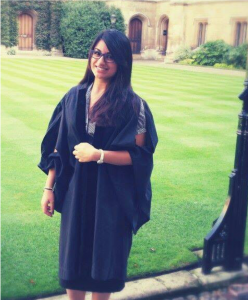
As a member of St Edmund’s, I benefitted profoundly from the distinctive range of academic networks supported by the college (as well as its generous grants to support conference attendance) – the Faraday Institute seminars, held fortnightly in the Garden Room, frequently spoke to themes that directly pertained to my own research interests. I was also fortunate to build up close personal and professional connections with the Woolf Institute, a centre devoted to promoting interfaith dialogue across the Abrahamic faiths and to conducting research on the multi-faceted relation between religion and society in the UK today, spanning the disciplines of theology, anthropology, history, and the social sciences. I attended several of the Institute’s events over the year, and undertook a two-week summer internship, working closely with the Institute’s members on several unique research projects. Comparative philosophical and theological study has always been my primary academic focus, and my time at the Woolf Institute reinforced for me just how interdisciplinary theoretical work can shape the possibilities for creative forms of practical inter-faith collaboration.
Navigating the various challenges and the abundant rewards of being a student at Cambridge has, in a profound way, shaped my self-awareness in ways that have constantly grounded me in a deep sense of gratitude and a commitment to ‘give back’. It would be a gross understatement to say that my university years have been formative – without the support and the guidance of my supervisors, tutors, peers and (informal) mentors, who have kindled interests and curiosities that I didn’t know I had, my academic path could never have been so rewarding, energising, collaborative and wholly nourishing. It is the vibrant learning environment that the university fosters, and the indispensable support networks of its colleges, that have made Cambridge, for me, a place to truly call ‘home’.
